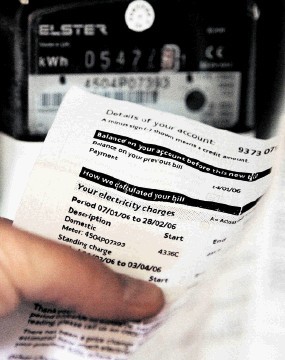
Around 2.5 million households were struggling to pay their fuel bills in England in 2015, official figures show.
Some 11% of households faced heating bills that pushed them below the poverty line in 2015, the latest year for which figures are available – a slight rise from 10.6% in 2014.
The gap between the bills that fuel-poor households faced and what they could afford to pay was more than £350, but had fallen since the previous year, the statistics show.
Levels of fuel poverty, measured as facing high bills and low incomes, were highest in the private rented sector where more than a fifth (21.3%) of households faced an average shortfall of £410 to pay their bills.
Among different kinds of household, the highest prevalence of fuel poverty was for single parents with dependent children, with almost a quarter (23.6%) in difficulties.
People living in uninsulated, solid-wall homes and older buildings were more likely to face fuel poverty, while those in newer and well-insulated homes were least likely to be struggling.
In 2015, the average fuel poverty gap between what people could afford to pay and what they needed to heat their homes to a decent level was estimated at £353, a decrease of 5.6% in real terms from 2014.
The total gap across all fuel-poor households shrank slightly to £884 million.
But the annual rise in the number of homes in fuel poverty was the second in a row, and official projections suggest the proportion facing high bills and low incomes will be similar in 2016 and 2017.
Peter Smith, director of policy and research at anti-fuel poverty charity National Energy Action (NEA), said it was “hugely disappointing” to see fuel poverty in England continue to rise.
He said: “Sadly we think cold homes needlessly kill up to 80 people per day in the winter months. This is not acceptable in the fifth largest economy in the world.
“Cold homes also cause untold havoc to our national health services.
“This costs us all as taxpayers well over £1 billion a year as well as increasingly long queues to see GPs, get treated at accident and emergency (and) hampers efforts to discharge vulnerable patients out of hospital.”
He called for UK-wide resources to stop “tragic winter deaths” and a joint ministerial summit on health and fuel poverty.